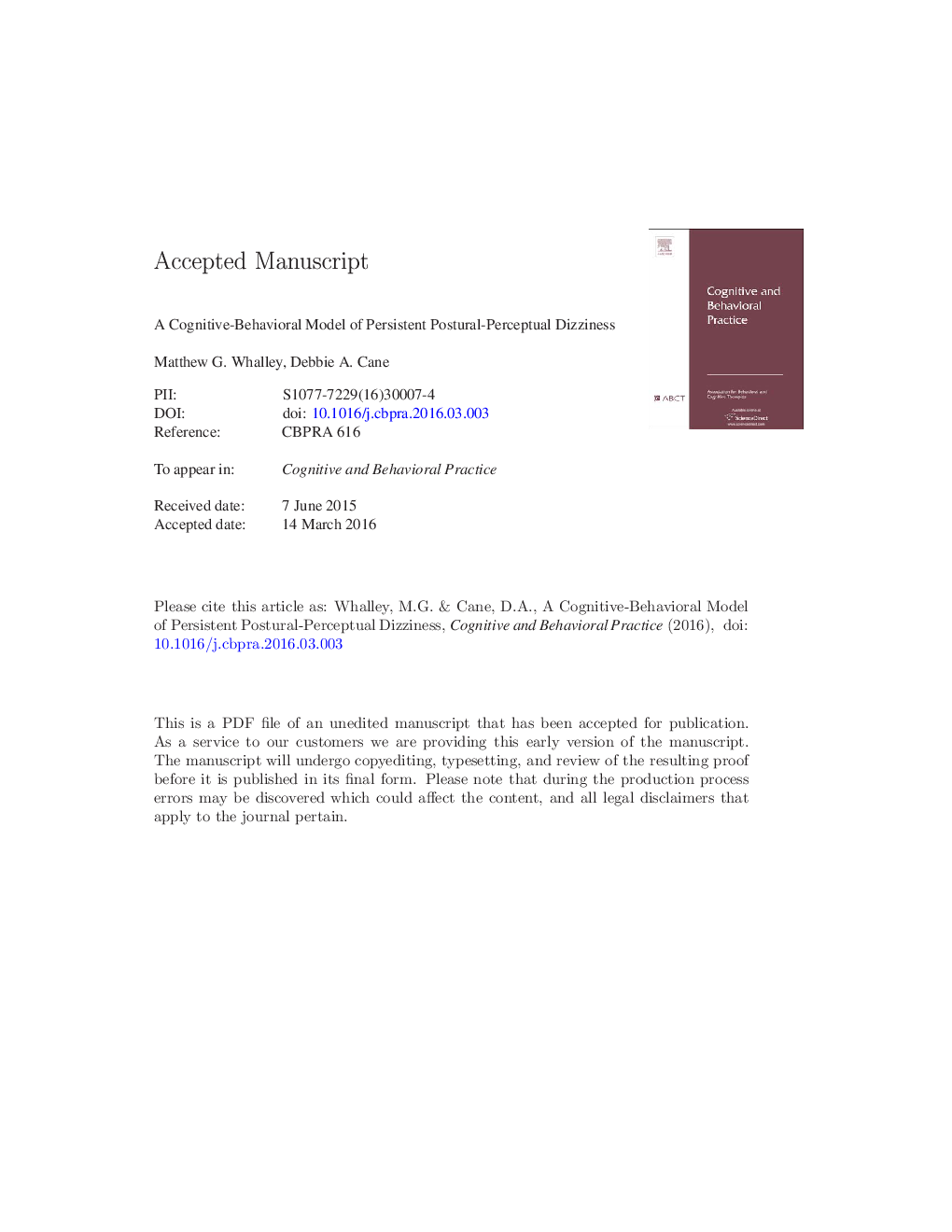ترجمه فارسی عنوان مقاله
یک مدل شناختی-رفتاری از حالت افسردگی ماندگار
عنوان انگلیسی
A Cognitive-Behavioral Model of Persistent Postural-Perceptual Dizziness
| کد مقاله | سال انتشار | تعداد صفحات مقاله انگلیسی |
|---|---|---|
| 126800 | 2017 | 52 صفحه PDF |
منبع

Publisher : Elsevier - Science Direct (الزویر - ساینس دایرکت)
Journal : Cognitive and Behavioral Practice, Volume 24, Issue 1, February 2017, Pages 72-89
ترجمه کلمات کلیدی
سرگیجه مزمن ذهنی، سرگیجه روحی و فیزیولوژیکی، سرگیجه پوسیدگی فوبی، درمان رفتاری شناختی، فرمول بندی،
کلمات کلیدی انگلیسی
chronic subjective dizziness; psycho-physiological dizziness; phobic postural vertigo; cognitive behavioral therapy; formulation;

